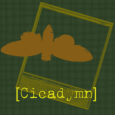How to uninstall Adobe Acrobat 9
Hi all,
I have pushed down software with the K1000 appliance quite successfully over the last month or 2 but I have now been asked to uninstall Adobe Acrobat 9 on all our user computers and replace it Adobe Acrobat 11 . Im not intirely sure if this is even possible to un-install because if you can then DELL havent made it an easy process like pushing down software is.
Ahhhh well, any help would be great. Thanks for taking the time to look at the post. Its much appreciated :)
Karl
Answers (5)
Create a label for machines with Acrobat 9.
Then create a managed install and ZIP your Acrobat 11 install files plus an install.cmd file.
The install.cmd file should include something like this.
@echo off msiexec /x "uninstall command" /q msiexec /i "install command"
Once the machines get 11 they will no longer be in the 9 label, and no longer run the MI.
Hi Karl,
There's a few ways you can do it. The K1000's robust Scripting engine could help push out a script to uninstall it. You could even upload a .bat file with the uninstall command in it as run it like a managed installation. I personally prefer to script the uninstall in with the install of the new version. So it will first check for the old version, uninstall it if it finds it, and then installs the new software. I actually made a little workflow diagram to explain it: http://i.imgur.com/VcqnTxq.png?1
Before I give you the code for that workflow, let me also mention that if you go into your K1000 -> Inventory -> Software, You can search for the particular acrobat install it will report how many computers it's installed on so you know you grabbed the right one, click on it, and often times you'll get to see the Product Un-Install Command right there on the software page. Though I normally tweak it a bit when you see MSIEXEC /I and the product code, I change it to MSIEXEC /qn /X and the product code. To uninstall it with no interaction.
So! I normally compile all the files I need into a working folder, add an install.bat, then zip it up and upload it into KACE. When it asks me what to run in the distribution I tell it Install.bat, not to prepend MSIEXEC and it's all good. That workflow code I mentioned:
::New Software Check
REG QUERY HKEY_LOCAL_MACHINE\SOFTWARE\Microsoft\Windows\CurrentVersion\Uninstall\{<Product Key for New Software>}
IF %errorlevel%==0 goto :END
) ELSE (
if %errorlevel%==1 goto :OLDCHECK
)
:OLDCHECK
::OLD VERSION CHECK
REG QUERY HKEY_LOCAL_MACHINE\SOFTWARE\Microsoft\Windows\CurrentVersion\Uninstall\{<REGKEY>}
if %errorlevel%==0 goto :UNINSTALL
) ELSE (
if %errorlevel%==1 goto :INSTALL
)
:UNINSTALL
::OLD VERSION UNINSTALL
MsiExec /qn /X{<REGKEY>} (Or whatever the uninstall code is)
:INSTALL
<Install Line for new Software>
:END
Here's a little bonus I found in my notes, a quick way to check for what OS version the machine running the script is using, nice if you need to do something different between 32bit and 64bit installs and you don't want to make two scripts.
set ProgFiles86Root=%ProgramFiles(x86)%
IF NOT "%ProgFiles86Root%"=="" (
<Place whatever you want to do in 64bit here, xcopy, install, whatever>
) ELSE (
<Place whatever you want to do in 32bit here, xcopy, install, whatever>
)
I hope this helped. Let me know if you have any questions.
Comments:
-
This is great! thanks! - k4rl@TES 11 years ago
-
Iv noticed that a lot of the Adobe Acrobat 9 software in the inventory is different versions i.e. 9.0.0, 9.5.1, 9.5.3 etc etc - When I do a msiexec /I for adobe acrobat 9 would it uninstall all versions or acrobat 9? - k4rl@TES 11 years ago
-
That's because the K1000 keeps a new entry for every version that the software reports. So when people update to a new version on their own accord you'll see another entry.
Look at the number of computers associated with the software, there should be one that has the majority of the computers in it. That's the main one to be concerned about. check out the product code for it and then for some of the other ones to see if they're the same. If they're not and you need to uninstall them, just add an extra line in the uninstall section with that product code, if it doesn't find it, it'll just keep going.
However I think you need to use MSIEXEC /X instead of /I, /I indicates install and while it might uninstall it for this particular piece of Software, /X is the actual switch to indicate uninstall. So it should work just fine as well. If you don't want the users to see the uninstall, use MSIEXEC /qn /X {<Product Key>} to silently uninstall it without them seeing. - samzeeco 11 years ago
-
Brilliant - Will do! Thanks for your help :) - k4rl@TES 11 years ago
You can use this tool: http://labs.adobe.com/downloads/acrobatcleaner.html
It is very easy to use and you can run it in silent mode. Here are the parameters for this tool:
---------------------------
AdbeArCleaner Help
---------------------------
This tool removes Adobe Acrobat or Adobe Reader including any preferences
and settings that may be preserved during a standard program uninstall.
AdbeArCleaner.exe [/silent] [/Product=<value>] [/CleanLevel=<value>] [/ScanForOthers=<value>] [/InstallPath=<value>]
/Silent Execute tool in silent (Non UI) mode.
If this parameter is not passed , UI mode is invoked.
/Product Product to clean.
=0 (Acrobat)
=1 (Reader)
Default value is 0.
/CleanLevel It specifies the level of cleanup i.e. components shared between Acrobat and Reader should be cleaned or not.
=0 (clean only distinct components)
=1 (clean both distinct and shared components)
Default value is 0 in case this parameter is not passed.
/ScanForOthers If this parameter is set to 0, AdbeArCleaner would clean
InstallPath entered on command line only.
=0 (Only clean the installation directory specified by
parameter ScanForOthers)
=1 (Clean all found/detected instances of the product)
Default value is 1.
/InstallPath It is a string that specifies installation path on the machine.
Default installation path is assumed if this parameter is
missing.
Example: "C:\Program Files (x86)\Adobe\Reader 10.0"
Example Command: AdbeArCleaner.exe /silent /product=0 /cleanlevel=0 /installpath=xyz (Note that there are no spaces around "=").
Logs are created at system temp folder i.e. at location [%temp%]\RaftLogs\AdbeArCleaner.log
---------------------------
OK
---------------------------
Comments:
-
Il look into this! Thanks - k4rl@TES 11 years ago









